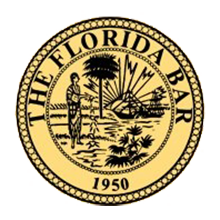https://www.floridabar.org/the-florida-bar-news/ask-judge-smith-default-judgments-and-damages/
The Florida Rules of Civil Procedure allow a plaintiff to move for a default judgment when a defendant fails to file or serve any paper by the deadline. Filing a paper means submitting it to the court’s clerk. Serving a paper means handing, mailing, or emailing a response to the plaintiff or opposing lawyer. ...












